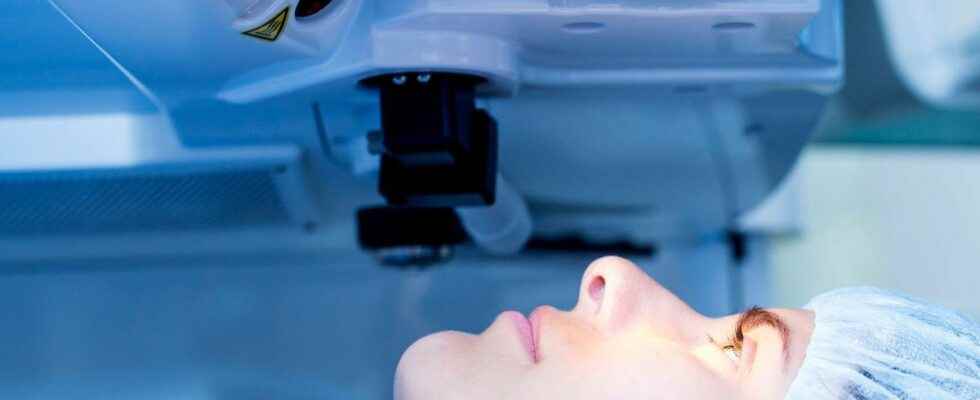Published on
Updated
Reading 2 mins.
Risks of double vision, dry eyes or pain… The FDA has announced that it wants to oblige healthcare professionals offering a LASIK service to warn their patients of its potential side effects.
Laser used by ophthalmologists to correct vision problems such as myopia, hyperopia or astigmatism, LASIK acts by modifying the shape of the cornea of the eye. This type of refractive surgery is widely used in France and the United States.
Potential side effects
The FDA is planning to review the provisions around this laser, and in particular the fact of having to warn patients of the side effects of surgery of this type. Thus, specialists should provide a written warning to patients before surgery.
This would also inform them of any vision problems that could occur after this surgery, such as double vision, dry eyes or pain, or even the need to continue wearing glasses.
Take precautions before surgery
Although LASIK has remained a safe technique approved by American health authorities for more than 20 years, the FDA wants to warn patients about the potential side effects that could occur. She imagines for this a document, which would mention these effects. And if the patient is already subject to it – in the case of dry eye, for example – surgery would be avoided.
The main elements retained by the FDA to avoid LASIK surgery are:
- A cornea that is not thick enough;
- eye inflammation;
- An active autoimmune disease of the eye or connective tissue;
- Glaucoma;
- Uncontrolled diabetes.
A different situation in France
In France, ophthalmologists discuss all these side effects with their patients during the preoperative consultation. According to Dr. Clémence Bonnet, hospital practitioner specializing in cornea and refractive surgery at Cochin Hospital in Paris “the procedure is different in France, compared to the United States, it is necessary to put things in perspective. In France, patients are warned that independence in glasses is sometimes accompanied by certain side effects, which do not always happen, but which are possible, we talk to them about it in consultation. In addition, they must sign an informed consent, a standard document issued by the French Society of Ophthalmology, which marks their agreement to this surgery, after understanding these potential adverse effects.
Some effects are reversible
For example, dry eyes or halos affect 20 to 30% of operated patients, on average, depending on the specialist. “For dry eyes, it is very often reversible, it happens because with the laser, we touch the nerves of the cornea. In the meantime, artificial tears are prescribed, to be applied 4 times a day. For halos, myopic patients are often used to them” concludes the ophthalmologist, who recalls that the only formal contraindication to LASIK is keratoconus, a pathology affecting the cornea.
